Were you aware that we lose around 4 kilograms of skin cells annually? Most of us – to put a loose average, carry sufficient fat in our bodies to produce about seven bars of soap. Not exactly an appealing concept, is it?
While we might look up a few sexy facts for you in the future, today, we’re focusing on the weird facts we never really think about. Like the fact that ear wax is basically a form of sweat and that your stomach’s lining likes to blush when you do!
Although we’ve covered some amazing facts about our bodies before, a hundred lists would never cover it all.
So, without further ado, here are 25 Weird Facts About The Human Body.

Your Brain Is A “NueroAirport”
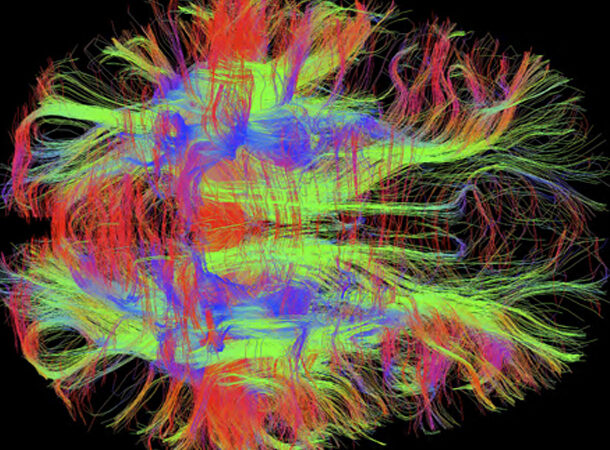 https://www.nm.org/healthbeat/healthy-tips/11-fun-facts-about-your-brain#:~:text=Research%20suggests%20the%20human%20brain,can%20combine%2C%20increasing%20storage%20capacity.
https://www.nm.org/healthbeat/healthy-tips/11-fun-facts-about-your-brain#:~:text=Research%20suggests%20the%20human%20brain,can%20combine%2C%20increasing%20storage%20capacity. Your brain is home to over 86 billion neurons, and each neuron communicates with approximately 10,000 others. Understanding the human brain, however, is more than just knowing the “how” behind the connections. That’s like trying to figure out the World Wide Web by counting the number of computers linked to it.
To put it into perspective, consider an international airport (like LAX) with 86 billion gates. Now, imagine that every one of these gates currently accommodates up to 10,000 flights heading for other gates inside the same airport. Every flight carries an individual set of data, which might include everything from a weather report to the plot for the next Hollywood blockbuster. That’s your brain—a frantic, never-ending, and incredibly interconnected “airport.” And it somehow just works; that’s incredible.
The Awful Fact About Human Skin And Dust
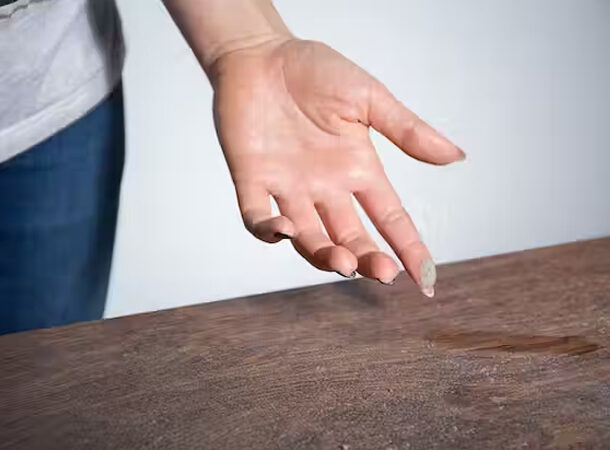 https://info.hughesenv.com/15-facts-about-dust
https://info.hughesenv.com/15-facts-about-dust The dust in our homes that causes so many people to seek antihistamines and allergy medications is made up of a large portion of human skin. Although several studies have offered estimates of how much of our skin contributes to the dust in our homes, the average and accepted number is approximately 50%. But that’s nothing new, so why is this fact even featuring on our list?
Well, give us a minute; we’re building up to it.
The average adult sheds roughly 500 million skin cells every day, or 0.03 to 0.09 grams (0.001 to 0.003 ounces) of skin flakes per hour. Where do you imagine all of that goes? Some of it ends up in our cars, some of it ends up in our homes, and a lot of it ends up in space. In fact, adding it all up, it’s believed that human skin has contributed nearly one billion tons of dust to our atmosphere.
Two Flatulent Facts
 https://www.google.com/search?q=Rectal+catheter&source=lnms&tbm=isch&sa=X&ved=2ahUKEwizw_ik9PDrAhVIlXIEHfhfDB0Q_AUoAXoECA0QAw&biw=736&bih=283#imgrc=6Opl73ftf5uEcM
https://www.google.com/search?q=Rectal+catheter&source=lnms&tbm=isch&sa=X&ved=2ahUKEwizw_ik9PDrAhVIlXIEHfhfDB0Q_AUoAXoECA0QAw&biw=736&bih=283#imgrc=6Opl73ftf5uEcM It’s official: female flatulence stinks worse than that of their male counterfar… uh, counterparts. According to RealClearScience.com, Women’s farts had much higher quantities of hydrogen sulfide in studies conducted by prominent flatulence expert Michael Levitt. The odor judges discovered that, at comparable quantities, this results in a significantly more offensive odor than men’s farts.
But the very fine scientists not only tested offending odors, they went above and beyond their duties and also tested the speed at which a fart leaves the human body. If this doesn’t interest you, feel free to close your ears; but, for the interested, it was discovered that the speed of a fart exiting the human derriere is approximately 10 feet per second – roughly 9.5 km/hr. The average person farts 14 times each day, producing enough volume to fill a medium-sized balloon. This volume can be measured with a very interesting piece of engineering genius called a rectal catheter. We kid you not.
Your Eyes Can Sense Flavors
 https://www.sciencedaily.com/releases/2013/04/130411194017.htm
https://www.sciencedaily.com/releases/2013/04/130411194017.htm We all know that our eyes are capable of amazing things, such as seeing in the dark and tracking things at lightning-fast speeds. However, all of that is still exclusively tied to sight. Did you know that your eyes also have the ability to taste?
According to research, human eyes are incredibly competent at recognizing flavors. In fact, our visual sense of flavor can actually overrule our taste buds. In one experiment, researchers served expert wine tasters two glasses of wine from the exact same bottle of white wine. However, the contents of one of the glasses were changed to red with a flavorless dye.
The experts incorrectly identified the latter as red wine, dealing a severe blow to the wine-tasting industry. While you may think it happened because wine tasting is a bogus science anyway – and that might be the case – something more complex was going on. You see, when the brain receives two contradictory pieces of information concerning taste, it favors the visual information, even if it is the brain of someone with years of experience with that taste.
Your Skin Can Smell
 https://www.the-scientist.com/the-nutshell/human-skin-can-smell-odors-37193
https://www.the-scientist.com/the-nutshell/human-skin-can-smell-odors-37193 One of the most valuable senses is our ability to smell our surroundings. It warns us of potentially hazardous microbes in the environment and tells us exactly what to avoid to stay healthy. We’ve always believed that this ability was limited to our noses. However, recent research has revealed that a few other organs, including our skin, might also be able to detect smells.
In one study, researchers discovered that when the skin is exposed to a synthetic type of sandalwood oil, the skin’s cell division mode is activated. Simply put, certain aromas can signal our skin to begin its healing process. This functions independently of our usual olfactory receptors in the nose. Just how our body smells odors – and the specific organs entangled in the process – is a continuing area of research.
Optical Inversion
 http://www.physlink.com/education/askexperts/ae353.cfm
http://www.physlink.com/education/askexperts/ae353.cfm Looking around you, you should remember that the veil of human perception ensures that our world is not always as it seems. When you look at an object, the image your brain receives actually appears inverted on your retina. Although our eyes see everything upside down, our brain adjusts the images by default, allowing us to see the world with its right side up.
In this regard, the brain’s tendency to be deceived provides a disturbing look into the potential to manipulate the human experience. In a series of experiments, scientists gave volunteers lenses that turned their worlds upside down. This reversal caused their brains to stop compensating for the retinal inversion it uses for them to see upright. When the lenses were later removed, the participants continued to see upside down for a while.
The Relationship Between Eye Color, Facial Morphology, And Trust
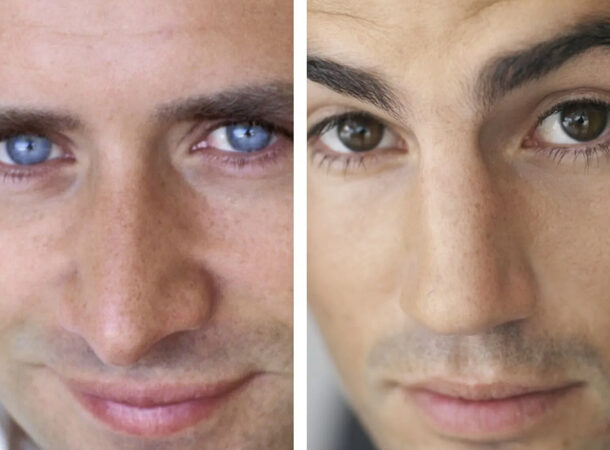 http://www.sciencedaily.com/releases/2013/01/130109185850.htm
http://www.sciencedaily.com/releases/2013/01/130109185850.htm Did you know your eye color and the shape of your face influence your level of trustworthiness? Well, according to people’s perceptions, anyway. Over the last decade, scientists have discovered remarkable biological and sociological connections. When facial structures and eye colors were evaluated, it was found that brown-eyed men, on average, had broader chins, larger mouths and noses, and stronger eyebrows with increased prominence. Blue-eyed males, on the other hand, had “finer and more angular” features, such as narrower, downturned mouths, smaller eyes, longer chins, and more widely spaced eyebrows.
Surprisingly, public perceptions of trustworthiness from every audience member tested revealed that the blue-eyed men with correspondingly different looks were less likely to gain the participants’ trust. However, the few men with blue eyes with broader faces garnered more trust than the brown-eyed men with traditionally broad faces. Women’s facial structures and eye colors did not influence observers’ perceptions of trustworthiness, confirming that women are judged differently from men.
Doorways Mess With Your Memory
 https://www.bbc.com/future/article/20160307-why-does-walking-through-doorways-make-us-forget
https://www.bbc.com/future/article/20160307-why-does-walking-through-doorways-make-us-forget Have you ever entered a room and forgotten why you were there? And after that, have you ever found that you can sometimes remember what you went in there for if you go back through the doorway? As it turns out, there’s a reason for that, and yes, it tells us that our “wiring” can be a bit weird.
Notre Dame researchers conducted various trials on the effect of rooms on memory. The subjects in the study were separated into two groups and given a basic task while covering the same distance. The only distinction is that one group passed through a doorway while the other did not. They discovered that those who passed under the doorway were three times more likely to forget what they were supposed to do. The researchers concluded that our minds see doorways as “event boundaries” and that decisions made in that area are “stored” there when we leave. That is also why you might remember if you go back into that room.
The Blind Have The Worst Nightmares
 https://www.nationalgeographic.com/science/article/how-the-blind-dream
https://www.nationalgeographic.com/science/article/how-the-blind-dream Ok, I am sure we’ve all wondered about this but have been too scared to ask. At the risk of offending some viewers, we decided to find out if blind people can see in their dreams. The answer is yes, but only if they lose their sight later in life. Interestingly, people born blind have nightmares as well, but they experience them as feelings, sounds, and sensations rather than anything visible.
A recent study enlisted volunteers from three groups to learn more about dreams. The first group was born blind, the second became blind, and the third had normal vision. There were significant differences. The bulk of nightmares occurred when the visually impaired went to sleep. The group born blind had the most nightmares (about 25% of their dreams), while those who became blind experienced a strange reduction. The more time they were blind, the fewer images they saw in their nightmares. However, they experienced more terrible nightmares than the volunteers who could see. The research backed up the theory that nightmares are related to waking events. After all, when someone has to traverse society in complete darkness, they have a greater awareness of risks and experience heightened feelings of vulnerability.
Your Immune System Kills Cancer Cells On A Daily Basis
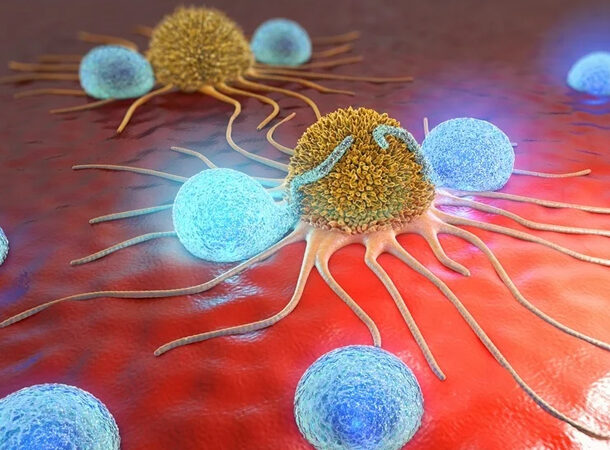 https://www.medicalnewstoday.com/articles/272092.php
https://www.medicalnewstoday.com/articles/272092.php Even though four out of every ten people will be diagnosed with cancer at some point in their lives, most of us have little to no knowledge of how it works. Although the process is more complicated than can be detailed here, it is what happens when our cells decide to grow unnaturally in any way.
Some cancers speed up cell growth, while others slow it down. What most of us don’t realize, however, is that our bodies are constantly killing off cancerous cells, and it wins far more often than it loses. Our immune systems are always looking for and destroying cancer cells, a process that occurs every day of our lives. In many of these instances, your immune system makes the call to kill cells that will not die on their own and could grow into tumors. Despite the fact that our immune systems win so many of the tiny skirmishes going on in our cells, cancer remains prevalent in all human populations because the wrong type of growth only needs to win once for cancer to happen.
Hair Is A Great Material To Clean Up Oil Spills
 https://time.com/6262631/philippines-oil-spill-cleanup-hair/
https://time.com/6262631/philippines-oil-spill-cleanup-hair/ Hair is hydrophobic by nature, which means it repels water. It is, however, a lipophilic substance, which means it enjoys absorbing oil. In fact, hair is so effective at absorbing oil that it is used to clean up oil spills. Remember this the next time you decide to share a hat or helmet… You will be absorbing someone else’s oils.
Yep, don’t share your hats, kids.
This isn’t one of those theoretical facts. It has been ongoing since the late 1980s. Most recently, in 2020, an oil disaster off the coast of Mauritius discharged 1,000 metric tons of crude oil into the Indian Ocean. Salons all across Mauritius chopped and contributed hair to supply eco-friendly material to assist with the clean-up.
Our Facial Expressions Can Influence Our Moods
 https://www.psychologytoday.com/intl/blog/slightly-blighty/201509/can-botox-treat-depression-facial-expression-can-cure-you
https://www.psychologytoday.com/intl/blog/slightly-blighty/201509/can-botox-treat-depression-facial-expression-can-cure-you As if it wasn’t enough that our diets, traffic, bosses, and moms could influence our moods. We now have something else to contend with. Our facial expressions. Our faces can express an absurdly wide range of emotions. Of course, not everyone can express themselves completely, but even the most reserved among us can do a lot with our faces. However, we’ve always believed that our facial expressions reflect what is going on in our brains and not the other way around.
As it turns out, our facial expressions influence our moods to the point where we can mislead our minds into feeling whatever we want it to. And science has confirmed it. Take, for instance, the study in which they employed Botox to remove frown wrinkles in people suffering from depression. The procedure relieved much of their melancholy, revealing that looking sad could lead to feeling sad.
Eyebrows Likely Saved The Human Race
 https://www.sciencealert.com/why-do-humans-have-eyebrows-neanderthals
https://www.sciencealert.com/why-do-humans-have-eyebrows-neanderthals Today, our eyebrows have one purpose: to protect our eyes from debris and rolling fluids. However, in 2018, researchers made a bizarre case: Without eyebrows, humans would have ended up extinct like the Neanderthals.
It may sound excessive, but the proof may be in the brow bone. Like certain primates today, Neanderthals and other early hominids possessed prominent bone ridges above the eyes. According to research, this ridge, missing in humans, serves no purpose other than to appear fierce. Worse, this ridge made it impossible for Neanderthals to raise their eyebrows and look friendlier. That distinction probably saved the human race. Our brows communicate delicate messages of friendliness, sympathy, and compassion.
Strangely enough, the fossil record supports this bizarre-sounding theory. The human brow ridge began to decrease around the same time when substantial social links between distant tribes emerged. Being able to raise one’s brow to indicate goodwill would have resulted in more allies than enemies – and, consequently, more power.
Your Body Produces More Saliva Right Before You Vomit
 https://medium.com/a-microbiome-scientist-at-large/why-our-mouth-waters-before-we-puke-f5815908b936
https://medium.com/a-microbiome-scientist-at-large/why-our-mouth-waters-before-we-puke-f5815908b936 Yes, another extremely “un-sexy” fact, but it is 100% true. It is a natural biological reflex that protects your throat, mouth, and teeth.
Stomach acid is, of course, extremely acidic, and if it weren’t for the stomach lining, it would eat a hole straight through it. Unfortunately, you lack that lining in your throat and mouth. Before you vomit, the extra saliva helps to dilute and rinse out the acid, guaranteeing that it will not harm the rest of your body. Your saliva also helps to neutralize the acid – to some extent. This is also why it is a good idea to rinse your mouth and clean your teeth after vomiting (apart from the totally gross aftertaste, of course).
We All Experience Motion-Induced Blindness
 https://michaelbach.de/ot/mot-mib/
https://michaelbach.de/ot/mot-mib/ The human eye functions similarly to a camera with a slow shutter. As a result, moving objects might leave streaks in our view. The brain’s attempt to shield us from any irritating streaks has led to something scientists call motion-induced blindness. This phenomenon, for the most part, eliminates the lines. However, it also causes stationary objects behind the moving ones to vanish.
This remarkable illusion doesn’t suggest that our vision has an essential flaw. In fact, as a species, we evolved to notice things that move. Predators and prey needed to be visible to survive, and neither stood still. As a result, experts believe that motion-induced blindness helps us see what is moving with clarity while rubbing out the streaks that interfere with our perception while simultaneously blotting out the things that don’t move – or matter – at that specific moment.
There’s A Good Chance You Only Breathe Through One Nostril
 https://mutesnoring.com/nose-facts-how-well-do-you-know-your-nose/
https://mutesnoring.com/nose-facts-how-well-do-you-know-your-nose/ In fact, it happens in 85% of people. This is fascinating because those people’s brains automatically switch between the two nostrils every three hours or so, although it can vary depending on the position of the body, illness, or simply individual differences.
This is achieved through erectile tissue in your nose, similar to the tissue in our reproductive organs. The erectile tissue in one nostril will gradually grow, eventually blocking most of it, while the tissue in the other will shrink, allowing for more air movement. While that is fascinating in and of itself, it has actually also been discovered that the side from which you breathe has an influence on your body. When you breathe from the right side, for example, your blood glucose levels rise, and you will use more oxygen. Additionally, inhaling via your left nostril increases activity in the right side of the brain and vice versa. This could help to stimulate your right (creative) or left (logical) sides as needed.
You Should Cough During Injections To Reduce Pain
 https://www.ncbi.nlm.nih.gov/pmc/articles/PMC344294/
https://www.ncbi.nlm.nih.gov/pmc/articles/PMC344294/ No matter our age, many of us are still as terrified of needles and injections as we were the first time we went to the doctor. Even if the shots don’t hurt as much as we imagine they will, the psychological impact of a needle piercing the skin is enormous. Fortunately, there is a simple and practical approach to reduce pain: just cough.
Many studies have discovered that coughing right before getting a shot raises blood pressure, which assists in reducing pain perception and, as a result, makes it hurt less. Any type of diversion can help to alleviate the discomfort of a shot. While coughing raises blood pressure, it also serves as a distractor in and of itself, which may help explain why it works better than, for instance, turning and facing away from the injection.
Wax On, Wax Off
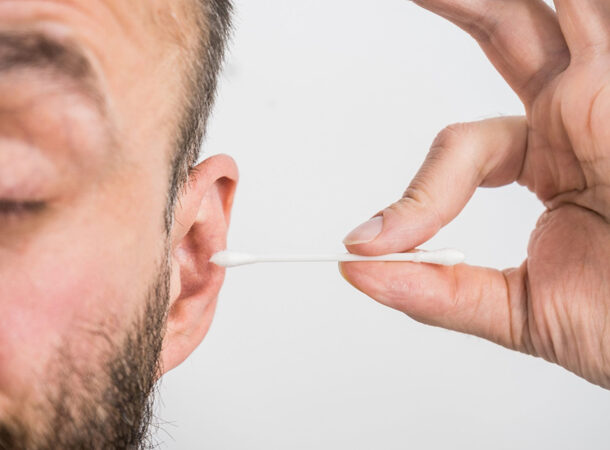 https://www.bbc.com/news/health-26527266
https://www.bbc.com/news/health-26527266 Ear wax has a nasty name, but it’s far more disgusting than its name implies. The body creates cerumen to help maintain and safeguard the auditory canal in various ways, including trapping dead skin, killing germs, keeping the skin moist and acidic, and preventing dust and bugs from entering the eardrum. So it’s basically something disgusting that prevents even more disgusting things from happening.
There are two types of ear wax: dry and wet, and the type you produce is determined by genetics. Regardless, its exit from our ears is one of the body’s most impressive tricks: migratory cells. In fact, you could place an ink dot on your eardrum and watch it travel over a few weeks, and it would be “carried out” by the movement of your cells.
Your Brain Can Manipulate Time
 http://discovermagazine.com/2008/aug/11-how-your-brain-can-control-time
http://discovermagazine.com/2008/aug/11-how-your-brain-can-control-time Albert Einstein spent his entire life trying to persuade everyone that time is relative. Unfortunately, it took us a few years to get the tools to prove it, and the more we studied it, the more we realized that he was 100% correct. Today, we know that our experience of time is linked to our position in space and that a combination of seemingly unrelated factors influences it.
According to scientists, our brain also plays a significant role in how we perceive time and can manipulate it when necessary. That is because our internal clock differs from “real-time” and is controlled by different regions of the brain. For instance, are you old enough to have noticed that time goes by much faster as you grow older? That’s not your imagination. Your internal clock slows down as you age, making everything that happens outside seem faster. The same principle applies when you’re having fun and time just flies by.
Your Bacteria Outnumbers You, Literally
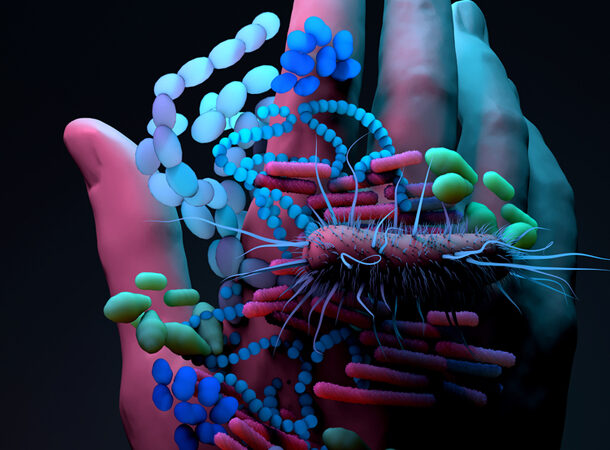 https://www.scientificamerican.com/article/strange-but-true-humans-carry-more-bacterial-cells-than-human-ones/
https://www.scientificamerican.com/article/strange-but-true-humans-carry-more-bacterial-cells-than-human-ones/ Your gut’s bacterial makeup is its own biome. It does everything from making you desire sweet and salty junk food to influencing your mood. And, not to sound flippant about it – but your bacteria outnumber you. It may not be the most comforting to hear, but your body contains a bona fide ecosystem, with approximately 10 times more bacterial cells than human cells.
While bacterial cells are significantly smaller than a typical human cell, they dominate our makeup in terms of sheer numbers while also wielding an unsettling influence over your brain. Scientists have recently uncovered just how much our gut health controls our body. This has resulted in ground-breaking surgeries like (warning, this is incredibly gross) fecal transplants, which have bizarrely shown positively promising outcomes for weight loss and hormone balance.
Cellular Memory
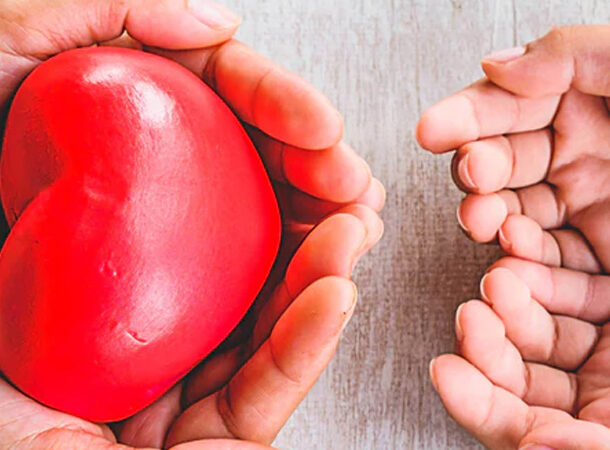 https://www.sciencedirect.com/science/article/abs/pii/S0306987719307145
https://www.sciencedirect.com/science/article/abs/pii/S0306987719307145 Traditional Western models of psychology and physiology view the brain as the center of the human intellect, where thoughts are produced and memories are preserved. Nevertheless, numerous reports from organ donation recipients claiming personality changes have spurred interest in scientists who believe unfamiliar memories and thoughts may be the result of a cell memory-based consciousness.
Cases of culinary preferences and even sexual orientation switching have been reported. In one particularly frightening case, the recipient of a heart from a murder victim led investigators to the murderer. It is unknown if these changes are solely stress-related or if something more mysterious occurs when body parts are merged with new bodies.
A Sexy Beard Fact
 https://livebearded.com/blogs/do-better/how-sex-increases-beard-growth#:~:text=It%20doesn't%20work%20quite,Testosterone%20production%20after%20sexual%20activity.
https://livebearded.com/blogs/do-better/how-sex-increases-beard-growth#:~:text=It%20doesn't%20work%20quite,Testosterone%20production%20after%20sexual%20activity. Finally, a sexy fact. Here at List 25, we aim to please people.
If you listen carefully in a soundproof room at midnight each night, you will hear your own hair growing. Just kidding, that is a complete lie. However, your hair is the second fastest-growing tissue in your body, after bone marrow (because your blood cells are more important than your hair). It’s not an unusual or sexy fact, we know, but this one is.
If you want a long, luscious beard, you should have more sex. And that is a fact. When you anticipate sex, essentially when you generate more testosterone, your hair follicles get the word that it’s time to work harder (hold back on the jokes, please). So, while you’re, uh, having fun, your beard is growing faster than ever!
You Can Switch Off Your Gag Reflex
 https://jada.ada.org/article/S0002-8177(14)65414-3/pdf
https://jada.ada.org/article/S0002-8177(14)65414-3/pdf We placed the following item after our sexy beard fact just to prove that we have a sense of humor. Now, let’s keep our minds out of the gutter please.
With the exception of a few people, practically everyone is born with the gag reflex; however, its severity differs from person to person. It’s the body’s way of ensuring that we don’t choke on our meals and that we transition easily from a liquid to a solid diet as infants. Of course, it can be rather irritating, especially for those who have gagged while eating and so forth… Thankfully, science has discovered a way to turn it off, or at least reduce its intensity.
Researchers discovered that exerting pressure on the palm considerably reduces the intensity of the gag reflex and may even turn it entirely off for some people. All you have to do is put your thumb inside your fist and squeeze as hard as you can.
You Gain 7 Miles Of Blood Vessels For Every Pound Of Fat You Gain
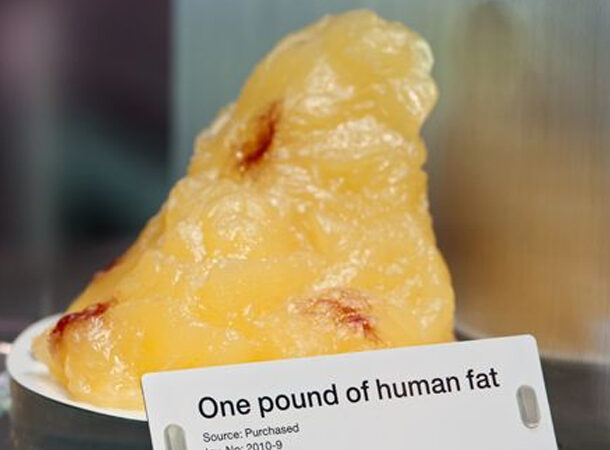 https://www.viplab.in/blog-details/for-every-pound-of-fat-you-gain-your-body-adds-seven-miles-of-new-blood-vessels-/#:~:text=new%20blood%20vessels.-,For%20every%20pound%20of%20fat%20you%20gain%2C%20your%20body%20adds,miles%20of%20new%20blood%20vessels.&text=Whever%20new%20tissue%20develops%20in,it%20by%20developing%20new%20vessels
https://www.viplab.in/blog-details/for-every-pound-of-fat-you-gain-your-body-adds-seven-miles-of-new-blood-vessels-/#:~:text=new%20blood%20vessels.-,For%20every%20pound%20of%20fat%20you%20gain%2C%20your%20body%20adds,miles%20of%20new%20blood%20vessels.&text=Whever%20new%20tissue%20develops%20in,it%20by%20developing%20new%20vessels Hearing this, it’s easy to understand why obesity and heart usually go hand in hand. The majority of the new blood vessels are tiny capillaries, but there are also small veins and arteries. This means that even if you are “only” 10 pounds overweight, your heart has to move your blood through an additional 70 miles of blood vessels. The good news is that this works in reverse as well.
When you shed one pound of fat, your body will begin to break down and reabsorb the no longer needed blood vessels. This is promising for dieters because one pound may not seem like a lot to drop, but even a small change can have a significant impact on your heart!
The Stardust In Our Bodies
 https://www.physicscentral.com/explore/poster-stardust.cfm
https://www.physicscentral.com/explore/poster-stardust.cfm The item at number one on our list today is much more exhaustive than the others because not only do we have stardust in our bodies – we are actually made of it. MADE of it.
The notion that humans are made of stellar materials has been around for decades, but we’ve only been able to confirm it very recently. At the beginning of our universe, only basic elements like hydrogen and helium existed. When these compounds gathered together to form the first stars, larger and more complicated elements began to accumulate inside those bodies. It included elements like nitrogen, carbon, phosphorus, oxygen, iron, and sulfur. These elements, consequently, define human beings almost entirely.
You might be asking how these elements arrived on Earth. Well, when stars approach the end of their lives, they typically explode, ejecting a variety of materials from their outer layers. The relics of these exploding stars fall to the Earth’s surface after traveling enormous distances for an extended period, where they mingle with the rest of the Earth’s soil. Plant life then absorbs these components scattered in the ground, and we do the same by consuming those plants.
Over time, the materials generated inside the stars become a part of our bodies, which are constantly replenished with these elements. A few years ago, scientists revealed that 97% of the atoms in the human body are the same as those found in stars. Incredibly, it is estimated that stardust accounts for 93% of our bodies’ total mass.



























